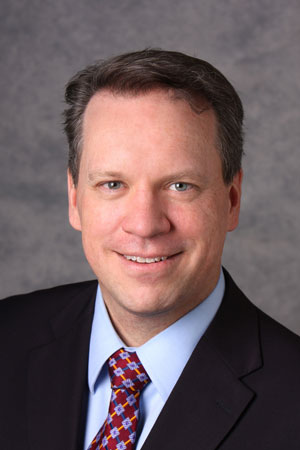The Ontario Bar Association has launched a mental-health effort after its president’s candid discussion of his own struggles with mental health struck a chord with many in the profession.

OBA president Orlando Da Silva, who spoke publicly about his depression when he took over the president’s role in the summer, now appears on the organization’s web site talking about his own suicide attempt in an effort to normalize conversations around mental illness.
The association is also going to launch a continuing professional development series under the banner “the mindful lawyer.”
“What we’re trying to do is start the conversation about depression in order to de-stigmatize it, to make the OBA . . . a safe place to talk about depression where you can raise mental-health issues without fear of ridicule, scorn or embarrassment,” says Da Silva.
“By putting it front and centre, we want to take the spotlight off of the stigma and reduce its significance in the discussion, just normalize the discussion,” he adds.
When Da Silva talked about his own struggles with depression this summer, he knew many other lawyers were suffering in silence. Every time he has spoken publicly about mental health since then, people have lined up to tell him about their own experience, he says.
“It feels like we’ve uncovered a need that was larger than we anticipated. I knew there were people out there like me who were suffering in silence. I didn’t know there were so many.”
In addition to the professional development series, the OBA’s mental-health effort will include a mental-health brief with helpful advice on how to identify and cope with some of the triggers of mental-health challenges.
Lawyers looking for help can access services at places like the Homewood Health Centre. “We’re not going to be acting as therapists. . . . That’s not what we’re going to do,” says Da Silva.
“What we’re trying to do is simply create an environment face to face where you can talk about it at our networking events but also online because a lot of people still feel embarrassed or ashamed and they still need an anonymous way of getting help.”
The idea is that if mental health is front and centre at the OBA, lawyers will feel it’s not something that’s embarrassing to talk about. “And besides, if I can do it, may be they can do it, you know?” says Da Silva.
Also featured on the OBA’s web site is Canadian Bar Association president Michele Hollins, who has previously spoken to Law Times about dealing with a period of depression after her twin daughters’ departure for university.
“I couldn’t sleep but I didn’t want to get up,” Hollins tells Da Silva in the video interview featured on the OBA web site.
“I didn’t eat. I stopped exercising. I stopped communicating with people,” she adds, describing the feeling as like being under water.
After arriving at her office for work, Hollins tells Da Silva she would lie on the floor and cry before getting up to go home.
Dr. Molyn Leszcz, psychiatrist in chief at Mount Sinai Hospital, says that for lawyers who are going through mental illness, it’s helpful to hear about the experiences of those they can relate to.
“It’s incredibly helpful,” he says.
“There’s good evidence that shows that if we want to reduce stigma, which is a tremendous barrier against people pursuing care, it’s important for them to be exposed to people they relate to, can respect,” says Leszcz.
“It makes it feel more accessible and more possible for them to pursue care. It humanizes the condition as well.”
Lawyers, Leszcz adds, experience some pressures that are unique to their fields.
“They deal with a lot of emotional intensity; they’re high performers,” he says.
“They receive and contain a lot of emotional issues on behalf of their clients and they have to deal with it often in isolation and maintaining strict confidentiality. So it’s a recipe for the system to just build and build and build until something breaks.”
It’s important that lawyers find ways to release stress and tension before depression sets in “as a common pathway to just being overwhelmed by life,” according to Leszcz.
Former CBA president Fred Headon praises the OBA’s efforts on the issue.
“I really applaud [Da Silva’s] conviction in bringing this forward,” says Headon.
“I think it takes a fair bit of courage. On top of a very demanding job with the OBA and his day job, to bring an initiative like this requires strength and commitment and I really applaud him for doing it.”
For more, see "
New OBA head opens up about struggle with depression."

 OBA president Orlando Da Silva, who spoke publicly about his depression when he took over the president’s role in the summer, now appears on the organization’s web site talking about his own suicide attempt in an effort to normalize conversations around mental illness.
OBA president Orlando Da Silva, who spoke publicly about his depression when he took over the president’s role in the summer, now appears on the organization’s web site talking about his own suicide attempt in an effort to normalize conversations around mental illness.